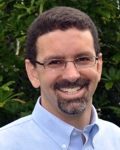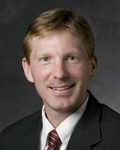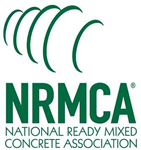Speakers
The 2014 International Concrete Sustainability Conference general and technical sessions will provide learning and networking opportunities on the latest advances, technical knowledge, continuing research, tools and solutions for sustainable concrete construction. Over 60 world renowned experts will present the latest developments related to design, specifying, manufacturing, testing, construction, maintenance, and research of concrete as it relates to sustainability.
Click here to download the conference brochure.
Click here for the conference schedule.
Click here for speaker abstracts.
Opening General Session (May 13, 8:00 am - 10:00 am)
 Jeremy Gregory,
PhD, Executive Director, Concrete Sustainability Hub and Research
Director, Massachusetts Institute of Technology, United States
Jeremy Gregory,
PhD, Executive Director, Concrete Sustainability Hub and Research
Director, Massachusetts Institute of Technology, United States
Dr. Gregory studies the economic and environmental implications of engineering and system design decisions, particularly in the area of materials production and recovery systems. Research topics include product and firm environmental footprinting, manufacturing and life-cycle cost analysis, and characterization of sustainable material systems. He has applied these methods, often with industry partners, to a range of different products and industries including pavements, buildings, automobiles, electronics, consumer goods, and waste treatment and recovery.
 John L. Knott, Jr., Executive
Director, Health Product Declaration Collaborative, United States
John L. Knott, Jr., Executive
Director, Health Product Declaration Collaborative, United States
John L. Knott, Jr. is an internationally recognized leader in the regeneration of urban real estate, infrastructure, energy and environmental systems. He is the creator of the CityCraft process, which is a development and city planning process that restores the economic, environmental and social health of cities. Mr. Knott is a recognized thought leader and keynote speaker on sustainable development, the green economy and restoration of cities. Mr. Knott has over 40 years of experience in urban redevelopment. His award-winning projects include work at: the Baltimore Inner Harbor, urban areas in Baltimore and Washington DC; the University of Texas Health Science Center in the Houston Medical Center; Dewees Island in South Carolina; and the Noisette Community of North Charleston in South Carolina. As The Health Product Declaration Collaborative’s first Executive Director, Mr. Knott works with companies and individuals committed to the continuous improvement of the building industry’s environmental and health performance, through transparency and innovation in the building product supply chain. As President/CEO and co-founder of the Noisette Company, LLC, Mr. Knott leads the Noisette Project development team, which has collaborated with the City of North Charleston, South Carolina, in the sustainable restoration of 3,000 acres of the city’s historic urban core and areas of the former Charleston Naval Base. Mr. Knott also served as the CEO/Managing Director of Island Preservation Partnership, which developed the 1,206-acre Dewees Island oceanfront retreat dedicated to environmental preservation.
 Phillip Williams, PE, LEED AP, Vice President of Sustainability and Technical Systems, Webcor
Builders/Webcor Consulting, United States
Phillip Williams, PE, LEED AP, Vice President of Sustainability and Technical Systems, Webcor
Builders/Webcor Consulting, United States
As a Vice President at Webcor, Phil is responsible for all sustainability and engineering efforts related to project construction, business practices and institutional and private sector research and development. In 2010 Phil initiated and now also leads the Webcor Consulting Group. Webcor Consulting provides Project Management, Construction Management, Sustainability and Green Technologies services on a global basis with operations in Latin America, The Middle East and Asia. Webcor is a founding member of the Carbon Leadership Forum (CFL), formed with the University of Washington to advance Supply Chain Carbon Accounting and Phil currently serves on the Industry Advisory Board for CFL. As a consistent member and supporter of the Strategic Development Council (SDC) as part of the ACI Foundation, he now serves on the SDC Executive Board. Under his guidance Webcor was the first and only California business to report and independently verified complete Scope 1, 2 and 3 Green-House-Gas (GHG) emissions to the Climate Action Registry and was selected as the only construction firm to "Road Test" the World Resource Institute (WRI) carbon accounting/green-house-gas (GHG) scope 3 protocol, which in November of 2011 was released for international use. He is also the Chair of the Industry Advisory Board for the Center for the Built Environment (CBE) through the University of California at Berkeley, serves on Lawrence Berkeley National Laboratories (LBNL) Working Group on Guaranteeing Building Energy usage and Phil serves as a member of the Executive Board of Directors for Eco-Districts where Webcor is a Founding Partner. Webcor is regularly acknowledge as one of the leading builders in California and is ranked in the top 40 largest specialty contractors in the United Sates. Webcor is a division of Obayashi Corporation, ranked in the top 25 of the world’s largest construction companies.
Closing General Session (May 14, 3:30 pm - 5:00 pm)
Does Transparent Reporting Add Value to Green Buildings?
Are we taking the right approach to reporting material impacts, corporate social responsibility and material health effects? This session will feature expert panelists who will discuss the merits of the new transparency requirements in LEED v4 and other green building standards including Environmental Product Declarations, Corporate Social Responsibility Reports and Health Product Declarations.
 Michael Lepech, PhD,
Assistant
Professor,
Department of Civil and Environmental Engineering,
Stanford University, United States
Michael Lepech, PhD,
Assistant
Professor,
Department of Civil and Environmental Engineering,
Stanford University, United States
Dr. Michael Lepech, PhD, was Terman Fellow at Stanford University in 2008 and Horace H. Rackham Fellow at University of Michigan in 2005. Dr. Lepech’s research interests are guided by the Sustainable Integrated Materials, Structures, and Systems (SIMSS) design approach. The SIMSS design approach recognizes the interdependencies between materials design, structural engineering, and system management, along with the impacts each of these disciplines has on achieving more sustainable engineered systems. The impacts are quantified through life cycle assessment (LCA) techniques. Design changes at any scale (materials, structure, or system) have non-linear effects on overall sustainable performance. SIMSS quantifies these effects and enables comprehensive design for more sustainable built environments and other societal systems. Dr. Lepech received his PhD from University of Michigan in 2006 and MBA from University of Michigan in 2009.
 Mark Webster, Structural Engineer,
Simpson, Gumpertz & Heger, United States
Mark Webster, Structural Engineer,
Simpson, Gumpertz & Heger, United States
Mr. Webster is structural engineer with over 20 years of design experience with expertise in sustainable design. He leads the development of green practices and operations at SGH. Mr. Webster is founding member of the Structural Engineering Institute Sustainability Committee and is past chair of the Carbon Working Group where he led a team to publish a white paper titled Structure and Carbon: How Materials Affect the Climate. He is also past chair of the Materials and Resources Technical Advisory Group of the US Green Building Council.
 Jennifer Atlee, HPD Technical Liaison, Health Product
Declaration Collaborative, United States
Jennifer Atlee, HPD Technical Liaison, Health Product
Declaration Collaborative, United States
As Technical Liaison with the HPD Collaborative, Jennifer Atlee facilitates the adoption of the HPD by manufacturers and their supply chains by providing technical support and as staff liaison to the Manufacturers Advisory Board. Through her prior work with BuildingGreen, Massachusetts Institute of Technology, Toxics Use Reduction Institute, Rocky Mountain Institute, and Demand Management Institute, Jennifer has conducted research and analysis in a variety of sustainability topics including green building with a focus on materials, commercial and industrial energy efficiency, electronics recycling, and the economics of toxics use reduction. A primary focus of hers has been developing and clarifying standards to assess the environmental sustainability of products and processes.
 Lisa Bradley, Ph.D. Vice President and Senior Toxicologist/Risk
Assessor, AECOM, United States
Lisa Bradley, Ph.D. Vice President and Senior Toxicologist/Risk
Assessor, AECOM, United States
Dr. Lisa Bradley has a Ph.D. in toxicology from the Massachusetts Institute of Technology, is certified by the American Board of Toxicology, and has 25 years of experience in risk assessment and toxicology consulting. She is the global risk practice technical lead for AECOM. Dr. Bradley is the project manager for the Pines Area of Investigation in Indiana, a coal ash site being managed under the Superfund Alternative program in USEPA Region 5. She has also conducted risk assessments for coal ash landfills, environmental communications for proposed landfills, and has worked with clients to evaluate and comment on state groundwater standards for coal ash related constituents, and has been active with utilities and industry trade groups in responding to EPA’s proposed rulemaking. She is a member of the American Coal Ash Association, and was recently elected to the ACAA Executive Committee by the Board of Directors.
 Kirsten
Ritchie, Director of Sustainable Design, Gensler, United States
Kirsten
Ritchie, Director of Sustainable Design, Gensler, United States
Kirsten Ritchie is a principal and director of sustainable design for Gensler, a global architecture and design firm. A recognized expert in sustainability rating systems (including LEED and CHPS), Kirsten has also played a pivotal role in the development of numerous building product standards including the newly released Health Product Declaration (HPD). She is also actively involved in the development and implementation of sustainability standards and guidelines at the organizational level, focused on improving the environmental performance and occupant well-being of global real estate portfolios and large mixed use developments. Ms. Ritchie is a LEED® AP+ (O+M) and a licensed professional engineer. She holds a bachelor of science in civil engineering from the University of California, Berkeley and a master of science in civil engineering from California State University, San Jose. She serves on the Board of Directors and Material and Resources Technical Advisory Group (MR-TAG) of the US Green Building Council. She is also an advisor to the Ecological Building Network, the Health Product Collaborative and the Responsible Purchasing Network.
 Godwin Amekuedi, Director of Quality
Assurance, Argos USA
Godwin Amekuedi, Director of Quality
Assurance, Argos USA
Godwin Amekuedi has over 30 years of Ready-Mixed Concrete and Concrete Construction related experience and is a Professional Engineer responsible for the development and administration of Argos USA’s Quality Management System of over 300 ready-mixed plants in the US. He participates on American Concrete Institute (ACI) Technical Committee 305 – Hot Weather, Committee 121 – Quality Management for Concrete Construction and (ACI) Committee 130 - Sustainability. Godwin is National Ready-Mixed Concrete Association (NRMCA) Research Engineering and Standards Committee – Past Chairman and member of the MIT Concrete Sustainability Hub Concrete Science Task Group. He is also a member of American Society of Testing and Materials (ASTM) Committee C09 on Ready Mixed Concrete. In 2010 Godwin was featured by Concrete Producer magazine as a Top Industry Influencer.
Special Session: Sustainability of Pavements (May 14, 8:00 am - 10:00 am)
This session will feature experts from national and state experts discussing ongoing efforts to improve the sustainability of pavement infrastructure. Representatives from the Federal Highway Administration (FHWA), New York Department of Transportation (NYDOT) and developers of two different Canadian rating systems will present details of the rating systems they've implemented along with case histories.
Michael Culp, Team Leader-Sustainable Transport and Climate Change at FHWA, United States
Gina Ahlstrom, Senior Pavement Engineer, FHWA Office of Pavement Technology, United States
Paul Krekeler (invited), Policy and Planning Division, New York State Department of Transportation, United States
Tom Kazmierowski, Golder Associates Ltd., former Manager of the Ontario Ministry of Transportation (MTO) Materials and Engineering Research Office, Canada
Technical Sessions (May 13 and 14)
The following is a list of presenters in alphabetical order (subject to change, detailed schedule coming soon).
Haithem Aboujrad, Lawrence
Technological University, United
States
Removal of Nutrients in Pervious Concrete, Haithem
Aboujrad, Luis A. Mata and Nicole M. Villeneuve
Mehdi Akbarian, Massachusetts
Institute of Technology, United
States
The Impact of Pavement Properties on Vehicle Fuel Consumption within
the Pavement Infrastructure, Mehdi Akbarian, Arghavan Louhghalam and
Franz-Josef Ulm
Subhan Ali, Stanford
University, United States
Life Cycle Design of Polypropylene Fiber-reinforced Cement-based
Composites, Subhan M. Ali and Michael D. Lepech
Godwin Amekuedi, Argos USA, United States
A Sustainable Approach for Returned Concrete, Godwin Q. Amekuedi and David R. Green
Laurent Barcelo, Lafarge, Canada
Smog-eating concrete: A New Technology for Better Cities,
Laurent Barcelo, Matthieu Horgnies, Isabelle Dubois-Brugger, Julie
Buffenbarger and Ellis Gartner
Michael Bienvenu, Florida
International University, United
States
Comparison of Fuel Consumption on Rigid Versus Flexible Pavements in
Florida, Michael Bienvenu and Xin Jiao
Lisa Bradley, AECOM, United
States
Hazard, Exposure, and Risk – Why All Three Are Important for Material
Ingredients Decisions, Lisa Bradley
Cesar Constantino, Titan
America, United States
A Journey "Under the Hood" of an Environmental Product Declaration
(EPD)…The Meaning Behind the Label, Cesar Constantino and David R.
Green
Tim Cost, Holcim
(US) Inc., United States
Extending the Use of Fly Ash and Slag Cement in Concrete with
Portland-Limestone Cement, Tim Cost, Thomas Matschei, Jay Shannon
and Isaac Howard
Aaron Crowley, Tennessee
Technological University, United
States
A High Volume Fly Ash Concrete Mixture for Tennessee Bridge Decks,
L. K. Crouch, Aaron Crowley, Daniel Badoe, Heather P. Hall and Alan
Sparkman
Matt Dalkie, Lafarge, Canada
Net Zero Energy Precast Concrete Home, Matt Dalkie and Don
Zakariasen
Francesco Di Maio, Delft
University of Technology, The
Netherlands
Recycling End-of-life Concrete: The C2CA project, Francesco Di
Maio, Somi Lotfi, Peter Rem and Mingming Hu
Hongying Dong and
Wanlin Cao, Beijing University of Technology, China
Giorgio Ferrari, Mapei
S.p.A., Italy
New Sustainable Technology to Recover Returned Concrete, Giorgio
Ferrari
Vanessa Gomes, University
of Campinas, Brazil
Influence of Allocation Methods on Life Cycle Assessment of Concrete
Containing Portland Cement with Blast Furnace Slag, Marcella Saade,
Maristela G. da Silva and Vanessa Gomes
Joshua Hester, Massachusetts
Institute of Technology, United
States
Streamlining Building LCAs in Residential Construction, Joshua
Hester, Randa Ghattas, Jeremy Gregory, Elsa Olivetti and Randolph
Kirchain
R. Douglas Hooton, University
of Toronto, Canada
Development and Standardization of Rapid Methods for Assessing the
Fluid Penetration Resistance of Concrete, R. D. Hooton, E. Karkar
and G. Charmchi
R. Douglas Hooton, University
of Toronto, Canada
Durable and Sustainable Concretes with Portland-limestone Cements and
SCMs, R. D. Hooton, R. Ahani and R. Fung
Ara Jeknavorian, Jeknavorian
Consulting Services, United
States
A Holistic Perspective on the Role of Concrete Admixtures for
Sustainable Concrete Constructuon, Ara A. Jeknavorian
Betiglu Jimma, Clemson
University, United States
Pervious Concrete: Do Ready Mix Concrete Producers Love it or Hate
it?, Betiglu E. Jimma and Prasad Rangaraju
Tom Kazmierowski, Golder
Associates Ltd., Canada
Comparative Metrics of Two Sustainability Rating Systems Developed in
Canada, Susanne Chan, Stephen Lee, Michael Navarra and Tom
Kazmierowski
Hank Keiper, The
SEFA Group, United States
The Future of Fly Ash is Under Our Feet, Hank Keiper and Jimmy
Knowles
Dirk Kestner, Walter
P Moore, United States
Embodied Energy and Carbon Impacts of Light Weight Concrete for
Steel-framed Commercial Buildings, Dirk M. Kestner and Kelly L.
Roberts
Carl Lenngren, Lund
University, Sweden
Different Pavement Types and Rolling Resistance, Carl A. Lenngren
Rui Liu, Kent
State University, United
States
Comparison of LCCA to Environmental LCA for Highway Pavement, Rui
Liu, Brooke Smartz and Barry Descheneaux
Mohamed Mahgoub, New
Jersey Institute of Technology, United
States
Concrete Industry Information Management Systems Innovative Concept
for Construction and Infrastructure Maintenance, M. Mahgoub, J.
Miima, A. Orama and L. Potts
Natt Makul, Phranakhon
Rajabhat University, Thailand
Utilization of Unprocessed High-volume Coal Fly Ash Combined with
Biomass Rice Husk Ash in Cost Effective Self-Consolidating Concrete,
Natt Makul and Gritsada Sua-iam
Hamed Maraghechi, Pennsylvania
State University, United
States
Investigation of Using Alkali Activation to Enhance the Pozzolanic
Performance of Recycled Glass Powder, Hamed Maraghechi, Mahsa
Maraghechi and Farshad Rajabipour
Luis Mata, Lawrence
Technological University, United
States
Frost Resistance of Pervious Concrete in Realistic Freezing and
Thawing Cycles, Luis A. Mata
Debora Mesa, POPlab
at MIT / Ensamble Studio, United
States
Supraextructures: New Opportunities for Prestressed Concrete Technology
in Architecture and Urban Planning, Anton Garcia-Abril and Debora
Mesa
Rafic Minkara, Headwaters
Resources, United States
Fly Ash Sustainability: How is the Industry Responding to Regulatory
and Other Shifts Affecting Ash Resources?, Rafic Minkara
Sean Monkman, CarbonCure
Technologies, Canada
Carbon Dioxide Utilization in Fresh Industrially Produced Ready Mixed
Concrete, Sean Monkman
Matthew Naugle, Thornton Tomasetti, United States
Buildings Instead of Landfills: Recycled Plastic Waste in Concrete
Structures, Wolfgang Werner, Jennifer Marmon and Matthew Naugle
Bo Ni and Dave Morris, Lafarge, Canada
Performance Evaluation of Municipal Concrete Sidewalks using Coarse
and Fine Recycled Concrete Aggregate, Bo Ni, Riad Rajab, Anto Sucic,
Abdurrahmaan Lotfy, Dave Morris and Paul Lum
Mark Niemuth, Lafarge, United
States
Internal Curing with Lightweight Aggregate for Durable and
Sustainable Concrete, Mark Niemuth, Wesley Jones, Jason Weiss,
George Zima and Laurent Barcelo
Arash Noshadravan, Massachusetts
Institute of Technology, United
States
Analyzing Cost and Hazard Resistance Trade-offs in Residential
Construction, Arash Noshadravan, Randa Ghattas, Jeremy Gregory and
Randolph Kirchain
Goli Nossoni, Manhattan
College, United States
Use of Recycled Shredded Tires with Special Surface Treatment as
Coarse and Fine Aggregate in Concrete, Goli Nossoni and Peter
Panagopoulos
Ahmed Omran, University
of Sherbrooke, Canada
Long-Term Performance of Glass-Powder Concrete in Field Applications,
Ahmed Omran, Etienne Morin and Arezki Tagnit-Hamou
Claudiane Ouellet-Plamondon, ETH
Zurich, Switzerland
LCA of Alternative Concrete: How Do We Do?, Claudiane
Ouellet-Plamondon and Guillaume Habert
Styliani Papatzani, University
of Bath - BRE Centre for Innovative Construction Materials, United
Kingdom
The Effect of the Addition of Nanoparticles of Silica on the Strength
and Microstructure of Blended Portland Cement Pastes, Styliani
Papatzani and Kevin Paine
Andrew Pinneke, Lafarge, United
States
Sustainable Benefits of Ultra-High Performance Concrete, Andrew
Pinneke and Kelly Henry
Kirsten Ritchie, Genslar, United States
Information Transparency: A Roadmap to Improving Health and Reducing Carbon in our Built Environment, Kirsten Ritchie
Nicholas Santero, PE
International, United States
Understanding Health Product Declarations and LEED, Nicholas
Santero
James M. Shilstone, Command
Alkon, United States
The Environmental Impact of Overly Restrictive Prescriptive
Specifications, James M. Shilstone
Md Siddiqui, University
of Texas at Austin, United
States
A Rational, Sustainable Approach to Pavement Concrete Mixture Design,
Md Sarwar Siddiqui and David W. Fowler
Omar Swei, Massachusetts
Institute of Technology, United
States
Characterization of Principal Drivers of Variation in the Life-Cycle
Cost Analysis of Pavements via a Scenario Space Analysis, Omar Swei,
Jeremy Gregory and Randolph Kirchain
Rich Szecsy, Texas
Aggregates and Concrete Association, United
States
Local Specification Changes to Produce Statewide Impact, Rich
Szecsy
Stephen Szoke, Portland
Cement Association, United
States
Making the Case for Enhanced Resiliency, Stephen S. Szoke
Paolo Tecchio, Massachusetts
Institute of Technology, United
States
Using Probabilistic Underspecification for Streamlining Building Life
Cycle Assessments, Paolo Tecchio, Jeremy Gregory, Randa P. Ghattas,
Elsa A. Olivetti and Randolph Kirchain
Natalia Vázquez, University
of Puerto Rico - Campus of Mayaguez, United
States
Optimization by Response Surface Methodology of Pervious Concrete
Containing Fly Ash and Engineered Iron Oxide Nanoparticles, Natalia
Vázquez, Linoshka Soto, Rene Santiago and Sangchul Hwang
Maggie Wildnauer, PE
International, United States
Full Building Life-cycle Assessment in Tally™, Maggie Wildnauer
Joseph Wright, University
of Wisconsin - Stout, United
States
The Effect of Adding PAAm Crystals to the Strength Characteristics of
Concrete, Jason Charalambids and Joseph Wright
Xin Xu, Massachusetts
Institute of Technology, United
States
A Probabilistic Approach to Comparative Life-Cycle Assessment of
Pavements: Sensitivity and Scenario Analysis, Xin Xu, Arash
Noshadravan, Jeremy Gregory and Randolph Kirchain
Frances Yang, Arup, United
States
LEEDv4: Sorting out HPDs vs EPDs, Frances Yang
Ezgi Yurdakul, National
Concrete Pavement Technology Center, United
States
A Comparative Analysis of Prescriptive and Performance-Based
Specifications for Sustainability, Ezgi Yurdakul, Peter Taylor and
Halil Ceylan
2014 MIT Concrete Sustainability Hub Showcase (May 15, 2014)
The MIT Concrete Sustainability Hub Showcase will be an opportunity to look back at the progress that has been made over the first five years of the Hub’s existence and celebrate the developments to come in the next five years of the Hub’s second phase. CSHub researchers will showcase research on concrete science, buildings, and pavements using poster sessions, plenary presentations, and interactive workshops. The event is an opportunity for stakeholders, including researchers, design professionals, and industry professionals to see first-hand the progress being made at MIT. Speakers include:
Jeremy Gregory, PhD, Executive Director, Concrete Sustainability Hub and Research Director, Massachusetts Institute of Technology
Randolph E. Kirchain, PhD, Principal Research Scientist, Materials Systems Laboratory, Massachusetts Institute of Technology
Franz-Josef Ulm, PhD, Professor, Civil and Environmental Engineering, Massachusetts Institute of Technology
Roland J.-M. Pellenq, PhD, Senior Research Scientist, Massachusetts Institute of Technology
Hamlin Jennings, PhD, Adjunct Professor, Principal Investigator, Concrete Sustainability Hub, Massachusetts Institute of Technology
Krystyn J. Van Vliet, PhD, Associate Professor of Materials Science and Engineering, Massachusetts Institute of Technology
Questions? Please contact Lionel Lemay of NRMCA, LLemay@nrmca.org, 847-918-7101.
